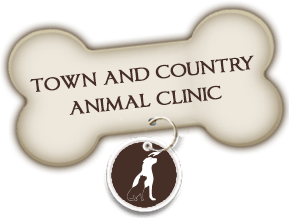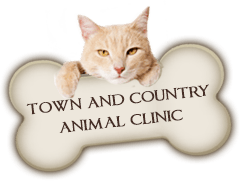We wanted to inform you about the recent concerns surrounding the line of Jerky Treats products. The products in question are labeled in a manner that suggests they are manufactured in Canada or the United States, but are actually imported from China. These include the dried chicken jerky products (tenders, strips or treats), duck jerky products and sweet potato jerky products. There has been concern with an increase in complaints of illness associated with the … Read More
-
-
Dangerous Foods For Your Pet
We all know that we should not be feeding our pets food off of the table since their quality pet food contains all the nutrients and calories they need to be healthy. But it is hard to resist those big eyes staring up at you while you’re eating. So we wanted to discuss what foods to avoid feeding your dog or cat and what foods are safe to share with your animal. FOODS NOT TO … Read More
-
Travelling With Your Pet
Travelling with the family pet can be a fun experience if proper planning has been done before you embark on your trip. There are several factors you should consider before planning to take your pet on vacation with you: Has your pet travelled before and is he happy and comfortable when travelling? Does your pet have any medical problems (ex: heart issues) that would make it unwise for him to travel? Is your destination (friends, … Read More
-
Your Pet And His Weight
Love should never be judged on how “good” we are to our pets by overfeeding and overindulging them. Rather, it should be judged on how we care for them. What is Obesity? Obesity (overweight) is a real disease and is almost always caused by overeating. Too much food and too little exercise. Metabolic, hormonal or “glandular” problems are extremely rare and can often be corrected by medical means in addition to diet control. Incidence of … Read More
-
Fleas: Prevention & Control
In order to prevent and control fleas on your pet and in your home, it is necessary to understand the life cycle of the flea and what methods can be used to combat this parasite at each of its four life stages. Four Stages in the Life of a Flea Eggs: A single adult female flea may lay up to 300 eggs in her lifetime. These eggs are always laid on a host animal. When … Read More
-
Your Aging Pet
Aging is not the inevitable beginning of sickness and suffering. Older pets can enjoy many years of active life when owners are aware of their changing health needs. Throughout this blog we will explain how aging can affect your pet and what signs you should observe and discuss with your veterinarian. Coat and Skin Decreased elasticity leads to thickened dry skin. The haircoat may become dry and brittle. Sebaceous glands can become hyperactive leading to … Read More
-
Allergies & Your Dog
Approximately one out of every five dogs suffers from some type of allergy. Although allergies cannot be prevented, they can be controlled. What is an Allergy? An allergy is a condition in which the immune system reacts abnormally to every day substances such as insect bites, foods and chemicals, pollens, molds, and house dust. The offending substances that cause these hypersensitivities are called “allergens.” Reactions can vary in severity from mild discomfort to fatality. Dogs … Read More
-
Spaying or Neutering Your Pet
For both males and females, spaying or neutering provides certain health benefits as well as eliminating distress and distraction for your pet. Why Should I Neuter or spay My Pet? “Spaying” is the procedure used for female pets. “Neutering” normally refers to the procedure used for male pets. Spaying or neutering your pet has many benefits for both you and your pet: Eliminates the reproduction of unwanted or homeless puppies and kittens. It is not … Read More
-
How To Perform CPR On Your Pet
In the event of an emergency, Cardiopulmonary Resuscitation may be required to save your pet’s life. If your dog is unconscious and cannot be aroused, is physically unable to move or is not blinking when touching the corner of their eye, or have pale mucus membranes (the color of their gums is white or bluish) this may be a situation where your pet requires CPR. CPR is ideally performed with two people but can be … Read More
-
A Review of Heartworm and Flea Medications
We have reached the midway point of our heartworm season. It’s not too late to protect your pet from heartworm disease, ticks, fleas and intestinal parasites. We do recommend a yearly blood test to ensure your dog does not have the heartworm disease or three other tick born diseases (Lyme disease, Anaplasmosis and Ehrlichiosis ). Below is a review of all of your medication options. Oral (by mouth) Trifexis (for dogs only) New this year … Read More






